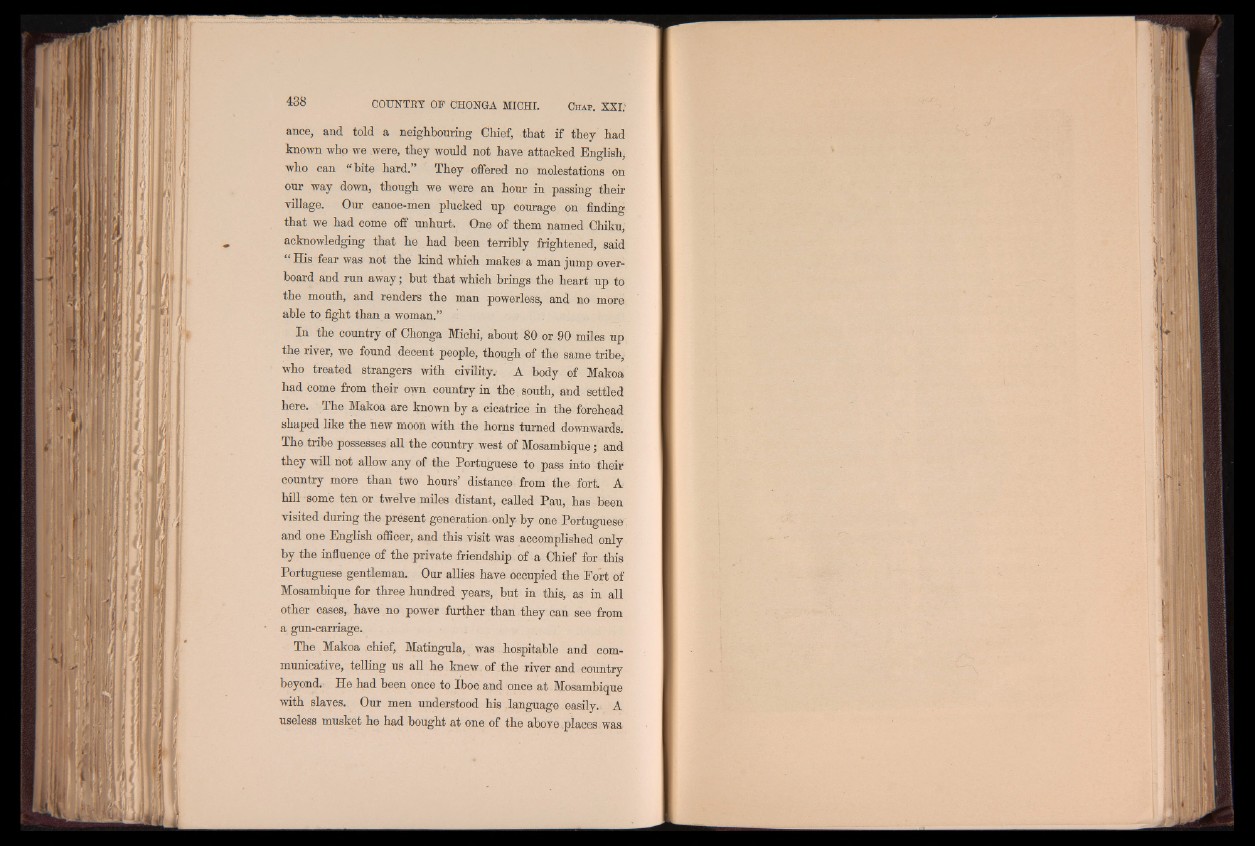
ance, and told a neighbouring Chief, that if they had
known who we were, they would not have attacked English,
who can “ bite hard. ’ They offered no molestations on
our way down, though we were an hour in passing their
village. Our canoe-men plucked up courage on finding
that we had come off unhurt. One of them named Chiku,
acknowledging that he had been terribly frightened, said
His fear was not the kind which makes' a man jump overboard
and run away; but that which brings the heart up to
the mouth, and renders the man powerless, and no more
able to fight than a woman.”
In the country of Chonga Michi, about 80 or 90 miles up
the river, we found decent people, though of the same tribey
who treated strangers with civility, A body of Maboa
had come from their own country in the south, and settled
here. The Makoa are known by a cicatrice in the forehead
shaped like the new moon with the horns turned downwards.
The tribe possesses all the country west of Mosambique; and
they will not allow any of the Portuguese to pass into their
country more than two hours’ distance from the fort. A
hill some tenor twelve miles distant, called Pau, has been
visited during the present generation only by one Portuguese
and one English ofScer, and this visit was accomplished only
by the influence of the private friendship of a Chief for this
Portuguese gentleman. Our allies have occupied the Port of
Mosambique for three hundred years, but in this, as in all
other cases, have no power further than they can see from
a gun-carriage.
The Maboa chief, Matingula, was hospitable and communicative,
telling us all he knew of the river and country
beyond. He had been once to Iboe and once at Mosambique
with slaves. Our men understood his language easily. A
useless musket he had bought at one of the above places was